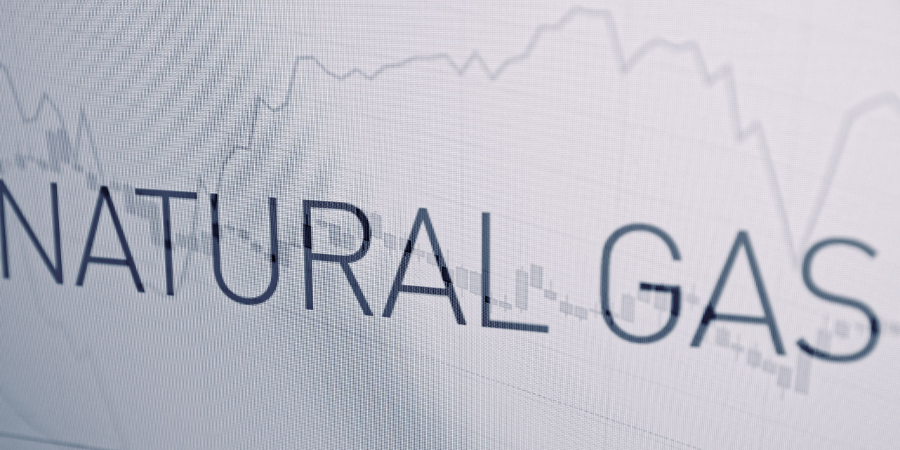In the ever-evolving energy markets, natural gas plays a crucial role as a primary fuel source for electricity generation, industrial processes, and heating. However, the natural gas market is characterized by significant price volatility, which can pose substantial risks for market participants. This volatility has been particularly evident in recent years, driven by factors such as shifting supply-demand dynamics, geopolitical tensions, and fluctuations in global energy markets. For these reasons, natural gas hedging has become an essential strategy for managing costs and mitigating risks associated with unpredictable price movements. In this article, we will explore the importance of natural gas hedging, how it works, and its critical role in the retail energy markets.
Overview Of The U.S. And Global Natural Gas Market
The natural gas market in the United States is a complex and dynamic system of pipelines, producers, traders, retailers, and consumers. The U.S. is one of the largest producers of natural gas globally, thanks to the vast reserves unlocked by natural gas fracking technology. However, despite this abundant supply, natural gas prices remain volatile due to various factors, such as weather patterns, storage levels, and regulatory changes. Globally, the natural gas market is interconnected, with liquefied natural gas (LNG) exports linking U.S. prices to global markets, and Russian pipelines feeding most of Europe’s natural gas supply. These dynamics are transforming natural gas into a globally-considered commodity that is easily influenced by geopolitical situations.
Risks And Challenges In The Natural Gas Markets
The natural gas market presents numerous risks and challenges for all participants. One of the primary risks is price volatility, which can lead to significant financial losses if not properly managed. This volatility is often driven by factors such as extreme weather conditions, government policy changes, or gas supply chain disruptions. For example, during a colder-than-expected February in 2021, the demand for natural gas in Texas spiked, driving up prices sharply. Conversely, mild weather can lead to lower-than-anticipated demand, causing prices to plummet. Additionally, the market is subject to geopolitical risks, such as the Russia-Ukraine conflict, which disrupted supply and led to rapid price increases. Ultimately, this conflict caused the EU to enact a gas price cap to protect consumers.
Natural Gas Price Volatility
Natural gas price volatility refers to the frequent and significant fluctuations in natural gas prices due to various market factors. This volatility is a significant concern for market participants because it can make budgeting and financial planning challenging. For instance, a sudden increase in natural gas prices can lead to higher operational costs for businesses, while a steep decline can impact the revenues of gas producers.
The Importance Of Natural Gas Hedging For Energy Market Participants
Natural gas hedging is a strategy used by energy market participants to manage the risks associated with price volatility. Different participants in the market, such as gas producers, wholesalers, retailers, and consumers, use hedging to protect themselves from unfavorable price movements. Let’s explore the motivations of each natural gas market participant in more detail.
Natural Gas Producers
Natural gas producers use hedging to lock in prices for their future production. By doing so, they can secure a guaranteed revenue stream, even if market prices drop significantly. This stability allows them to plan and invest in further production without the uncertainty of fluctuating revenues. Gas producers are often labeled “long the market” as they benefit from rising natural gas prices.
Wholesalers
Wholesalers purchase large quantities of natural gas and sell it to retailers or directly to consumers. Hedging allows them to secure prices for the gas they purchase, ensuring that they can maintain stable margins, even when market prices are volatile. Wholesalers can be both long or short the market depending on their positions or final contracts.
Retailers
Retail energy suppliers, or Load Serving Entities (LSEs), hedge their natural gas purchases to offer fixed-rate contracts to their customers. This enables them to protect their margins while providing price stability to consumers, who prefer predictable energy bills. Energy retailers are often considered to be “short the market” as they benefit from declining prices.
Consumers
Businesses that consume large amounts of natural gas, such as manufacturers or large commercial properties, hedge their gas costs to protect against sudden price spikes. By doing so, they can maintain stable operating costs and avoid budget overruns due to rising natural gas prices. Consumers utilize the contract structures retail suppliers provide to place natural gas price hedges.
The Types Of Gas Hedging
There are several natural gas hedging instruments are available to market participants, each serving different purposes and time horizons:
Forward Contracts (OTC)
Forward contracts are customized agreements between two parties to buy or sell natural gas at a predetermined price on a future date. These contracts are traded over-the-counter (OTC), meaning they are not standardized and can be tailored to the specific needs of the participants. Forward contracts are commonly used by producers and large consumers to lock in prices for future delivery, providing certainty in budgeting and planning.
Futures Contracts (Financial)
Futures contracts are standardized agreements traded on exchanges, such as the New York Mercantile Exchange (NYMEX). They require the delivery of natural gas at a future date and predetermined price. Futures contracts are widely used for hedging because they provide liquidity and transparency, allowing participants to easily enter and exit positions without having to negotiate complicated forward contracts with single counterparties.
Options (Financial)
Options give the holder the right, but not the obligation, to buy or sell natural gas at a specified price before a certain date. Options are useful for participants who want to hedge against price movements while maintaining the flexibility to benefit from favorable price changes. For example, a call option allows the holder to buy gas at a set price, protecting them if prices rise, while still benefiting if prices fall. This hedge is often used by large consumers who are buying gas at index prices. If the market price declines and their call option contract expires, they only risk the premium they posted to take title to the option. This is usually a net win for the consumer as they were able to pay their pre-forecasted price based on the hedge.
Physical Trades
Physical hedging involves the actual purchase or sale of natural gas in the spot market, often combined with storage strategies. For instance, a utility may purchase natural gas during periods of low demand and store it for use during peak demand periods, effectively hedging against future price increases. Physical natural gas traders might purchase gas at one location, contract with a pipeline operator to move it, and sell it to another location with higher demand. Physical traders are often able to make a profit spread by doing this.
Need Help Navigating Natural Gas?
Natural gas hedging is an essential strategy for managing the inherent risks of price volatility in the energy market. Whether you are a producer, wholesaler, retailer, or large consumer, implementing an effective hedging strategy can provide financial stability and protect against the unpredictable nature of natural gas prices.
At Diversegy, we understand the complexities of the natural gas market and the importance of effective hedging strategies. Our team of natural gas market experts can help you navigate prices, develop customized hedging solutions, and secure the price stability your business needs to thrive. Contact us today to learn more about how we can assist you in managing your natural gas costs.



